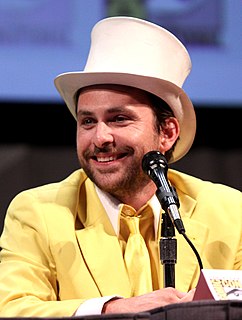A Quote by Charles Stanley
Fear stifles our thinking and actions. It creates indecisiveness that results in stagnation. I have known talented people who procrastinate indefinitely rather than risk failure. Lost opportunities cause erosion of confidence, and the downward spiral begins.
Related Quotes
When you allow circumstances beyond your control to determine your attitude and actions, you risk plunging into a downward spiral of hasty decisions and faulty judgments, to overreacting, giving up too soon, and missing those opportunities that always - always - appear just when you think life will never get better.
Failure, then, failure! so the world stamps us at every turn. We strew it with our blunders, our misdeeds, our lost opportunities, with all the memorials of our inadequacy to our vocation. And with what a damning emphasis does it then blot us out! No easy fine, no mere apology or formal expiation, will satisfy the world's demands, but every pound of flesh exacted is soaked with all its blood. The subtlest forms of suffering known to man are connected with the poisonous humiliations incidental to these results.
Food conditions the nature of the mind. Mind guides the thinking. Thinking results in action. Actions lead to commensurate or matching results and effects. This chain of action between the food we eat and the results of our actions highlights the fact that meat eating leads to beastly actions and the concomitant evil effects.
Lack of confidence, sometimes alternating with unrealistic dreams of heroic success, often leads to procrastination, and many studies suggest that procrastinators are self-handicappers: rather than risk failure, they prefer to create conditions that make success impossible, a reflex that of course creates a vicious cycle.
There is usually a clock in our heads regarding decisions we make and the course of our lives. Sometimes this clock is helpful in that it get us to move rather than put off key actions. Other times, it creates us false sense of urgency that can cause us to overreact, lost patience and make poor decisions. In raising this issue in my book, I want people to be aware of the clock in their heads and question whether that clock is helping or hindering the quality of each particular decision.
Failure to summon forth the courage to risk a nondogmatic and nonevasive stance on such crucial existential matters can also blur our ethical vision. If our actions in the world are to stem from an encounter with what is central in life, they must be unclouded by either dogma or prevarication. Agnosticism is no excuse for indecision. If anything, it is a catalyst for action; for in shifting concern away from a future life and back to the present, it demands an ethics of empathy rather than a metaphysics of fear and hope.
Every day on our streets there are people who are facing a combination of homelessness, mental illness, and addiction. Each of these conditions is challenging alone, but when experienced at the same time it creates a downward spiral that makes it even more difficult for the person to get treated and housed.
Hard work is about risk. It begins when you deal with the things that you'd rather not deal with: fear of failure, fear of standing out, fear of rejection. Hard work is about training yourself to leap over this barrier, tunnel under that barrier, drive through the other barrier. And after you've done that, to do it again the next day
There is nothing that teaches you more than regrouping after failure and moving on. Yet most people are stricken with fear. They fear failure so much that they fail. They are too conditioned, too used to being told what to do. It begins with the family, runs through school and goes into the business world.






































